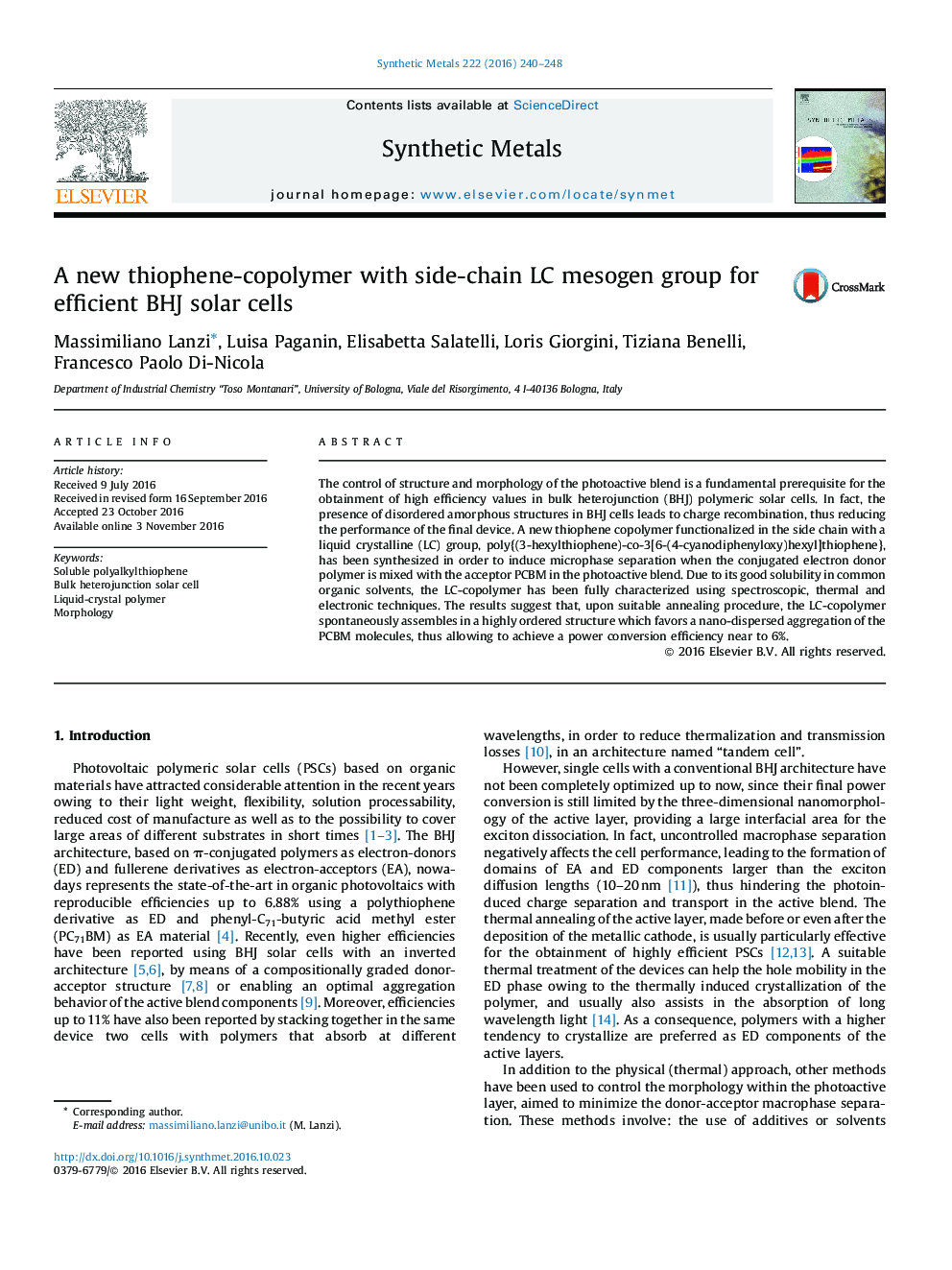| کد مقاله | کد نشریه | سال انتشار | مقاله انگلیسی | نسخه تمام متن |
|---|---|---|---|---|
| 5435513 | 1398112 | 2016 | 9 صفحه PDF | دانلود رایگان |

- Preparation of a LC-substituted thiophene copolymer for OPV cells.
- High solubility of copolymer even at high molecular weight.
- Presence of evident LC domains at room temperature.
- Tendency of the photovoltaic blend to self-organize (nanodomains).
- Efficiency of the LC polymer notably higher than conventional PATs.
The control of structure and morphology of the photoactive blend is a fundamental prerequisite for the obtainment of high efficiency values in bulk heterojunction (BHJ) polymeric solar cells. In fact, the presence of disordered amorphous structures in BHJ cells leads to charge recombination, thus reducing the performance of the final device. A new thiophene copolymer functionalized in the side chain with a liquid crystalline (LC) group, poly{(3-hexylthiophene)-co-3[6-(4-cyanodiphenyloxy)hexyl]thiophene}, has been synthesized in order to induce microphase separation when the conjugated electron donor polymer is mixed with the acceptor PCBM in the photoactive blend. Due to its good solubility in common organic solvents, the LC-copolymer has been fully characterized using spectroscopic, thermal and electronic techniques. The results suggest that, upon suitable annealing procedure, the LC-copolymer spontaneously assembles in a highly ordered structure which favors a nano-dispersed aggregation of the PCBM molecules, thus allowing to achieve a power conversion efficiency near to 6%.
: Ground-state configuration of COP repeating unit from DFT optimization (B3LYP/6-31G(d) level).74
Journal: Synthetic Metals - Volume 222, Part B, December 2016, Pages 240-248